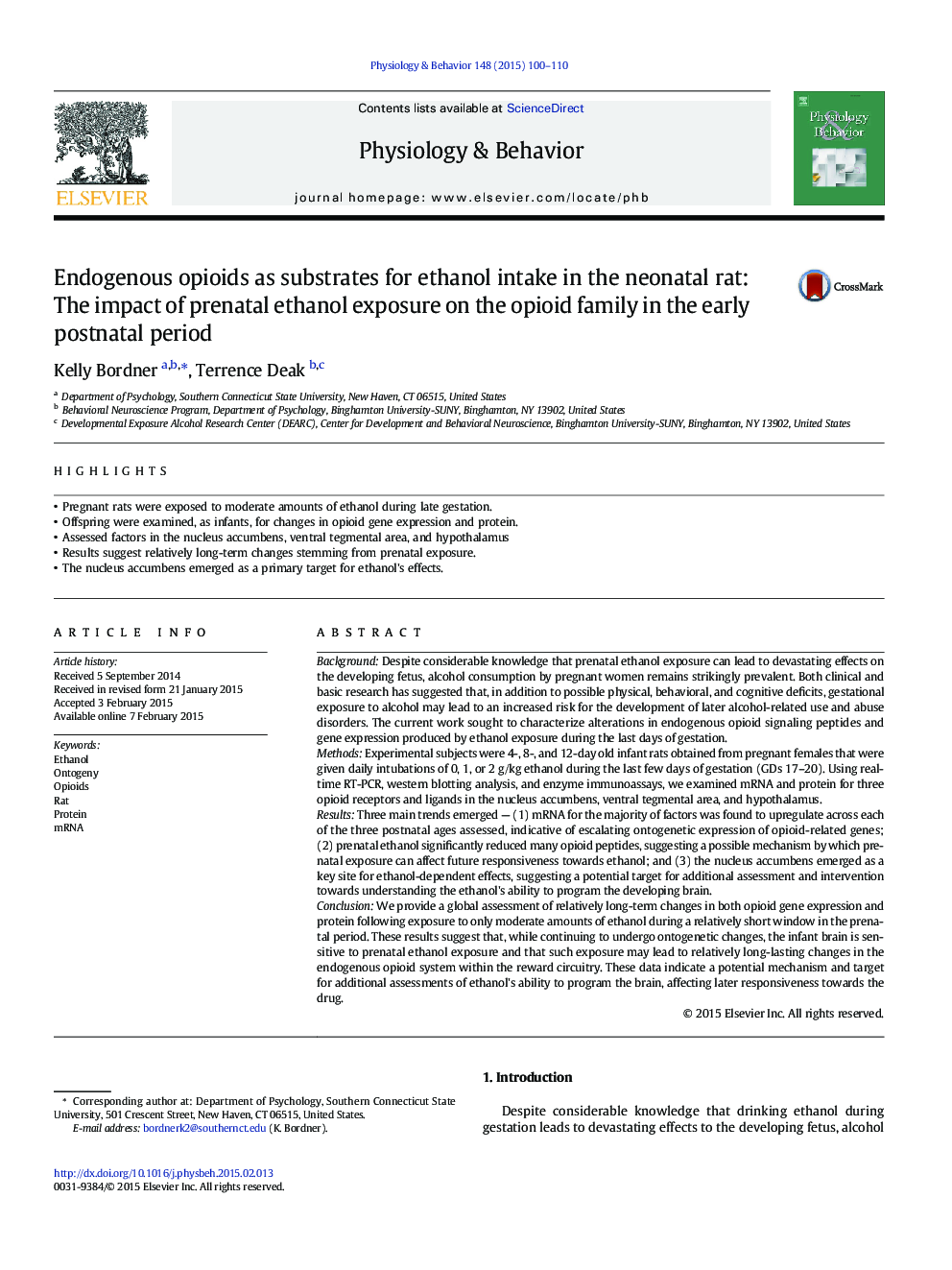| کد مقاله | کد نشریه | سال انتشار | مقاله انگلیسی | نسخه تمام متن |
|---|---|---|---|---|
| 2844099 | 1571169 | 2015 | 11 صفحه PDF | دانلود رایگان |
• Pregnant rats were exposed to moderate amounts of ethanol during late gestation.
• Offspring were examined, as infants, for changes in opioid gene expression and protein.
• Assessed factors in the nucleus accumbens, ventral tegmental area, and hypothalamus
• Results suggest relatively long-term changes stemming from prenatal exposure.
• The nucleus accumbens emerged as a primary target for ethanol's effects.
BackgroundDespite considerable knowledge that prenatal ethanol exposure can lead to devastating effects on the developing fetus, alcohol consumption by pregnant women remains strikingly prevalent. Both clinical and basic research has suggested that, in addition to possible physical, behavioral, and cognitive deficits, gestational exposure to alcohol may lead to an increased risk for the development of later alcohol-related use and abuse disorders. The current work sought to characterize alterations in endogenous opioid signaling peptides and gene expression produced by ethanol exposure during the last days of gestation.MethodsExperimental subjects were 4-, 8-, and 12-day old infant rats obtained from pregnant females that were given daily intubations of 0, 1, or 2 g/kg ethanol during the last few days of gestation (GDs 17–20). Using real-time RT-PCR, western blotting analysis, and enzyme immunoassays, we examined mRNA and protein for three opioid receptors and ligands in the nucleus accumbens, ventral tegmental area, and hypothalamus.ResultsThree main trends emerged — (1) mRNA for the majority of factors was found to upregulate across each of the three postnatal ages assessed, indicative of escalating ontogenetic expression of opioid-related genes; (2) prenatal ethanol significantly reduced many opioid peptides, suggesting a possible mechanism by which prenatal exposure can affect future responsiveness towards ethanol; and (3) the nucleus accumbens emerged as a key site for ethanol-dependent effects, suggesting a potential target for additional assessment and intervention towards understanding the ethanol's ability to program the developing brain.ConclusionWe provide a global assessment of relatively long-term changes in both opioid gene expression and protein following exposure to only moderate amounts of ethanol during a relatively short window in the prenatal period. These results suggest that, while continuing to undergo ontogenetic changes, the infant brain is sensitive to prenatal ethanol exposure and that such exposure may lead to relatively long-lasting changes in the endogenous opioid system within the reward circuitry. These data indicate a potential mechanism and target for additional assessments of ethanol's ability to program the brain, affecting later responsiveness towards the drug.
Journal: Physiology & Behavior - Volume 148, 1 September 2015, Pages 100–110
